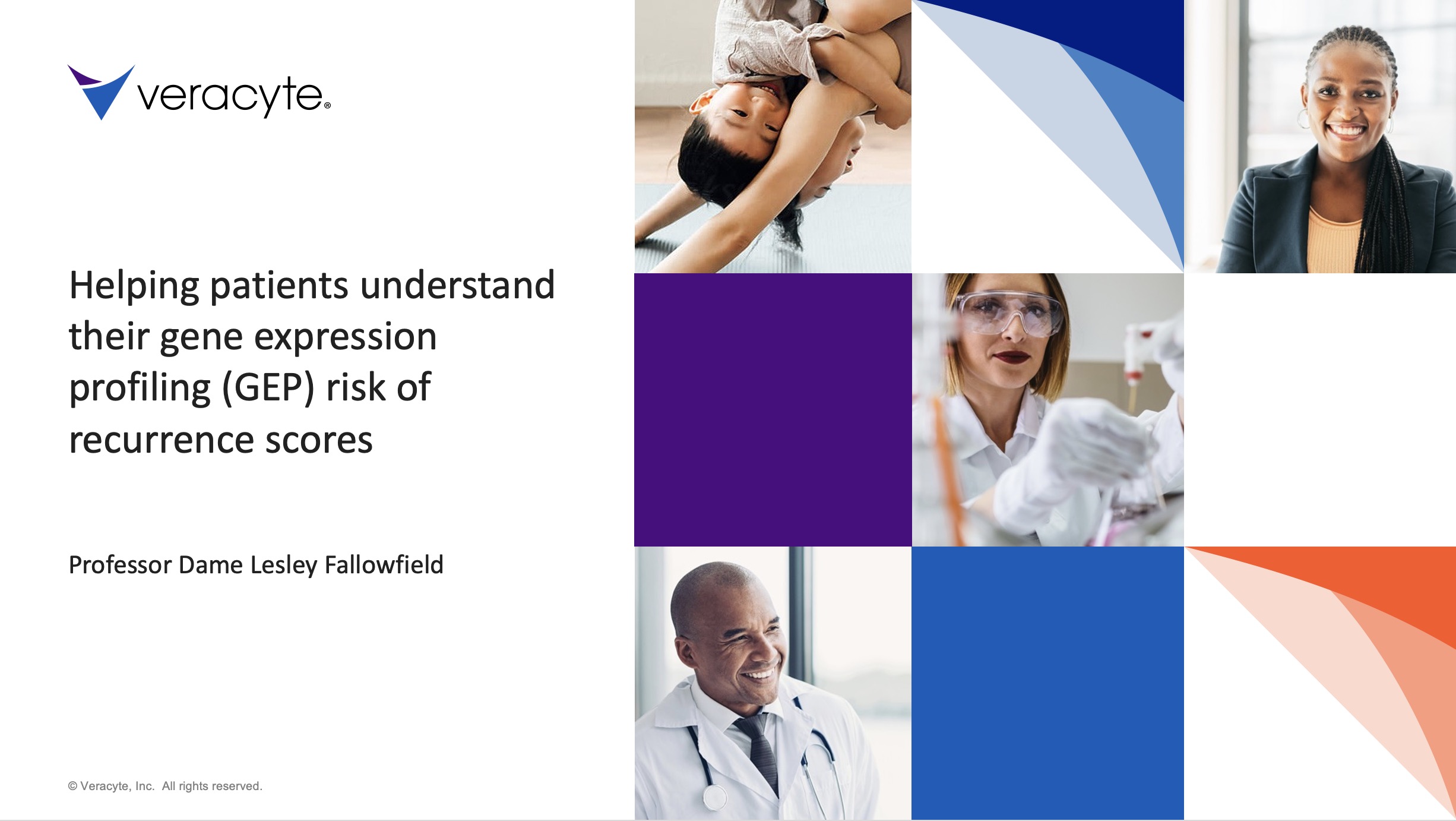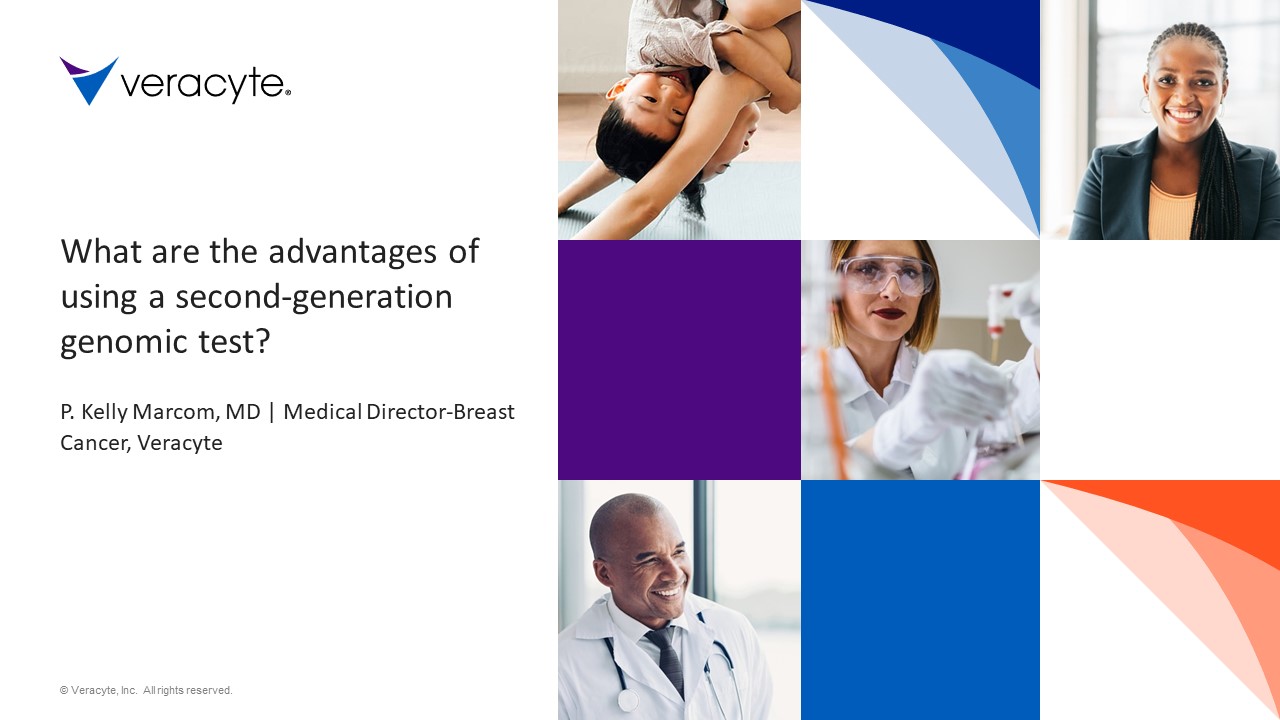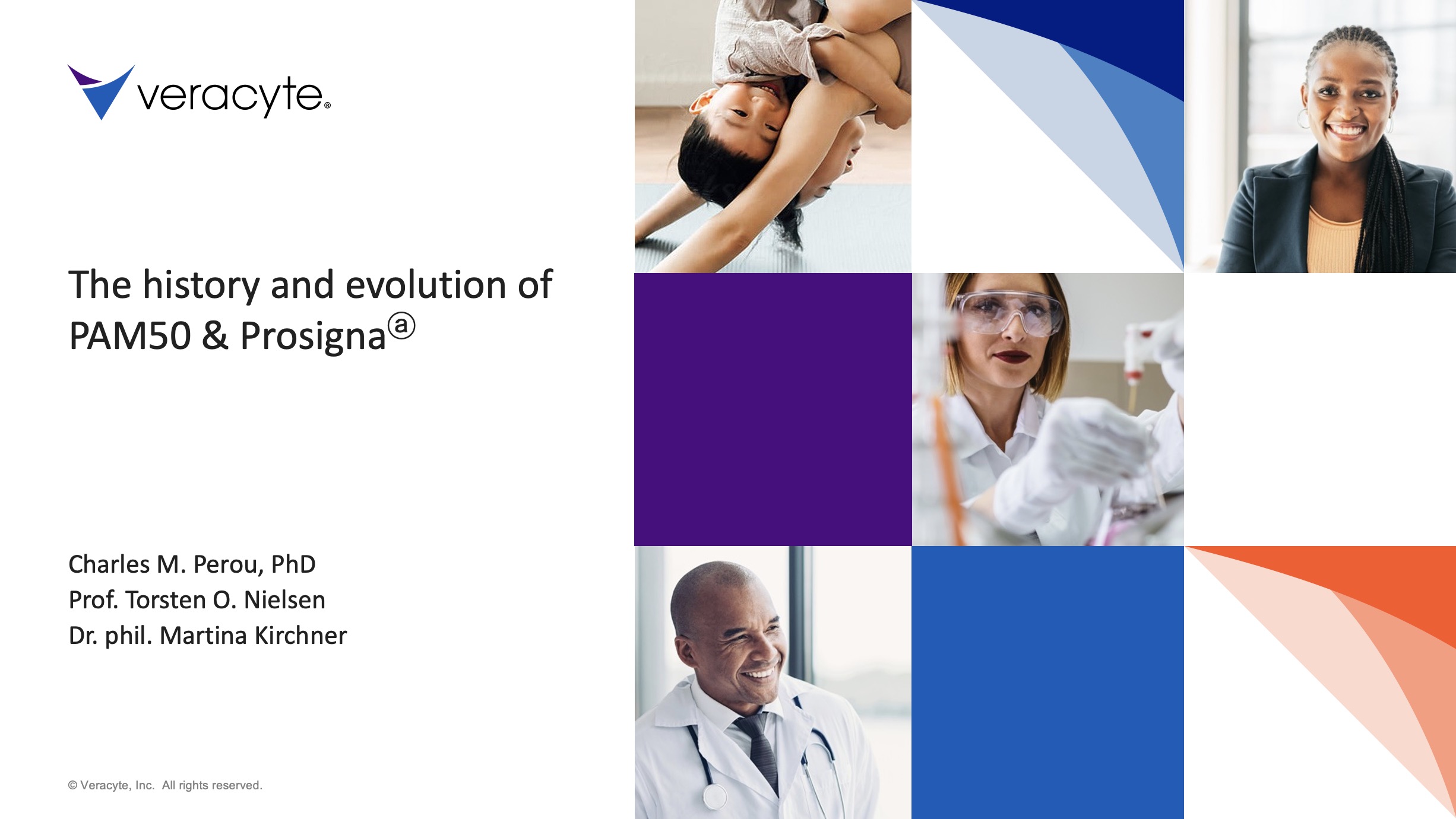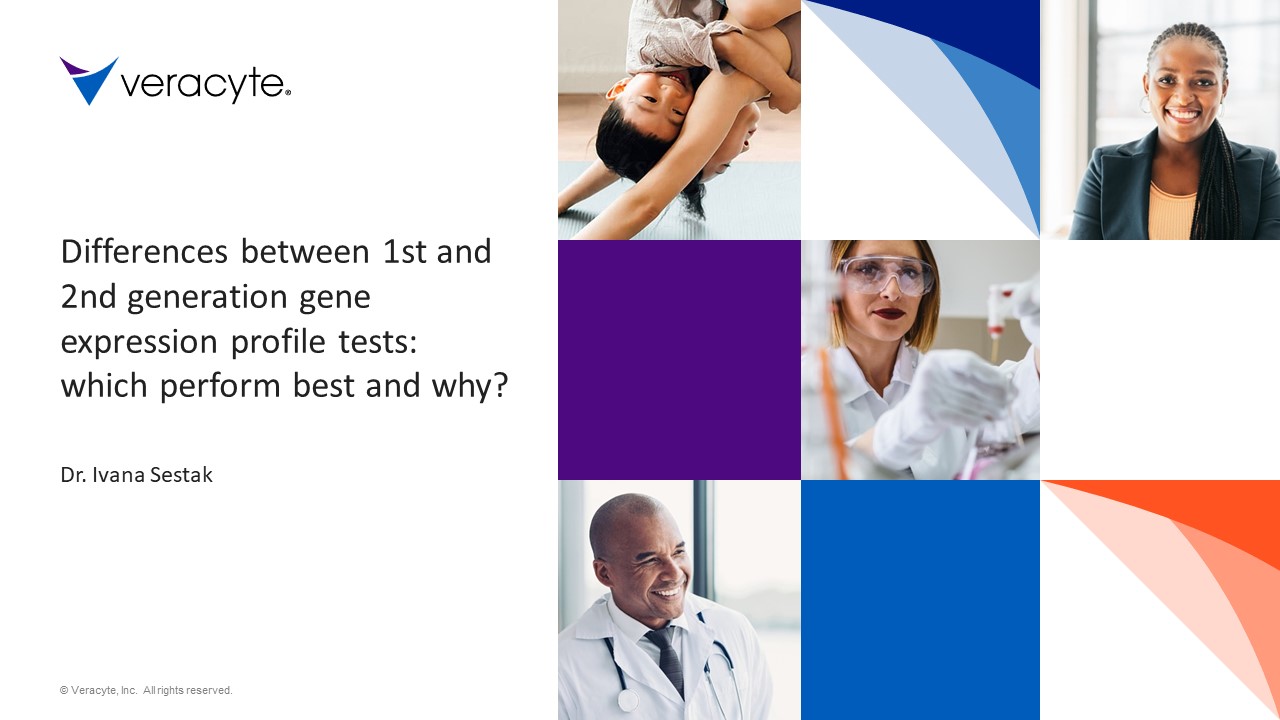1904 Alexander Drive Research
Triangle Park, NC 27709
800-345- GENE (4363)
888-287-8199 (fax)
Arizona
5005 South 40th Street
Phoenix, AZ 85040
800-710-1800
800-481-4151 (fax)
Connecticut / New York
3 Forest Parkway
Shelton, CT 06484
800-447-5861
212-258-2143 (fax)
www.oncology.labcorp.com
Tennessee
201 Summit View Drive, Suite 100
Brentwood, TN 37027
800-874-8532
615-370-8074 (fax)
www.oncology.labcorp.com
25 Riverside Dr #2,
Pine Brook, NJ 07058
1-888-599-LABS
https://www.siparadigm.com/
33608 Ortega Highway San Juan
Capistrano, CA 92690
866-894-6920
www.questdiagnostics.com


What are the ways to help breast cancer patients understand their risk of recurrence scores? In his webinar, Professor Dame Lesley Fallowfield discusses the successful TARGET educational programme in the UK and the IMPARTER study, which examines if provision of a specific patient information film improves knowledge about gene expression profiling (GEP) and enhances satisfaction with patient-clinician discussions.
Speaker: Professor Dame Lesley Fallowfield
*This session is intended for physicians practicing outside of the U.S., however, U.S.-based physician’s are welcome to attend.

Speaker: P. Kelly Marcom, MD | Medical Director-Breast Cancer, Veracyte Understand the potential of Prosignaⓐ
*This session is intended for physicians practicing outside of the U.S., however, U.S.-based physician’s are welcome to attend.

Speakers: Charles M. Perou, PhD, Prof. Torsten O. Nielsen and Dr. phil. Martina Kirchner
*This session is intended for physicians practicing outside of the U.S., however, U.S.-based physician’s are welcome to attend.

*This session is intended for physicians practicing outside of the U.S., however, U.S.-based physician’s are welcome to attend.

*This session is intended for physicians practicing outside of the U.S., however, U.S.-based physician’s are welcome to attend.